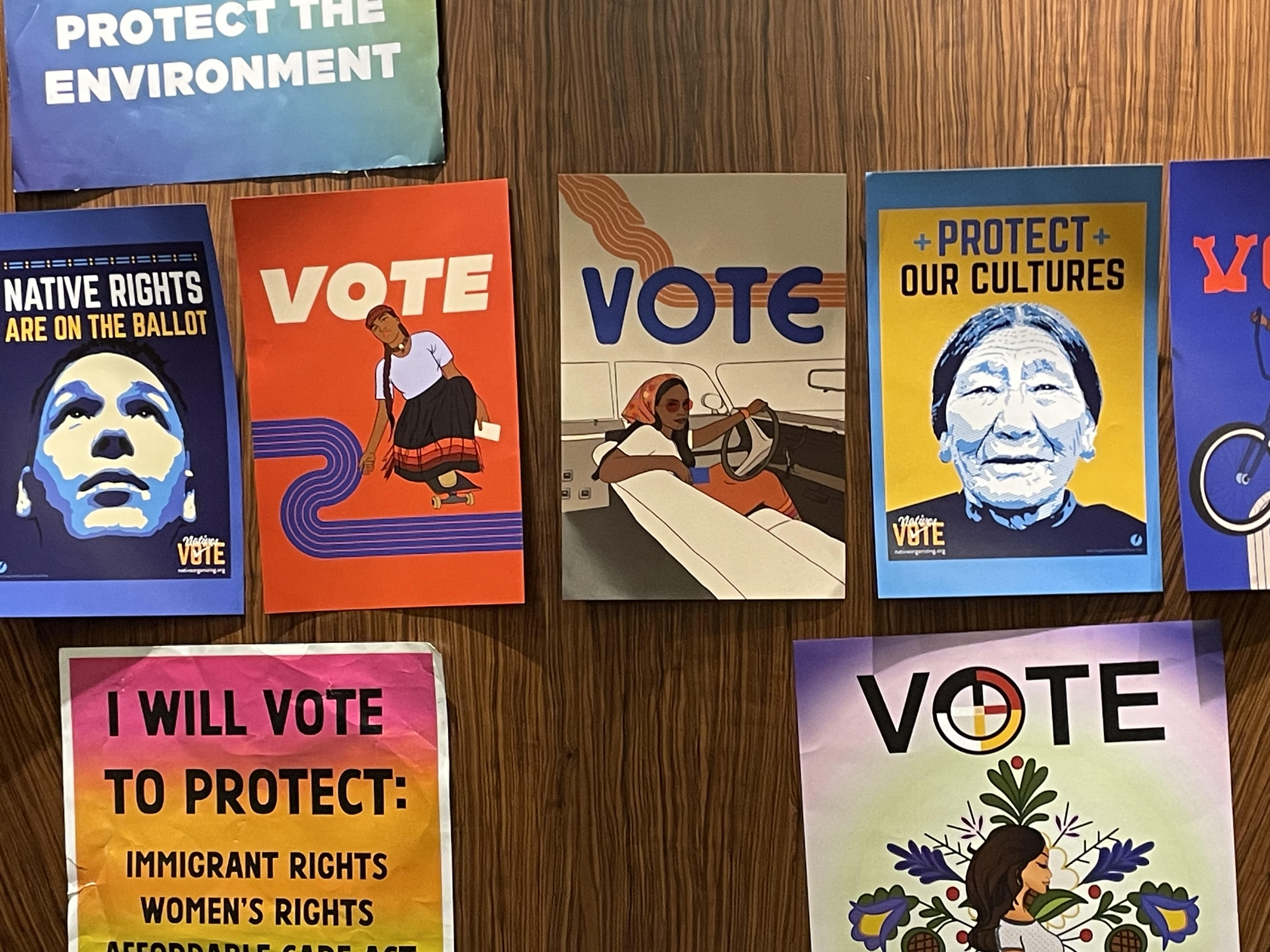
- Details
- By Neely Bardwell
Native Vote. Democratic U.S. Senators sent a letter to Secretary of the Interior, Doug Burgum, today calling out the devastating impacts of President Trump’s “election-integrity” promoting executive order (EO) and the Safeguard American Voter Eligibility (SAVE) Act on Native American voting rights.
The letter, led by Senators Alex Padilla (D-CA.), ranking member of the Senate Committee on Rules and Administration with oversight over elections, Brian Schatz (D-HI), vice chairman of the Senate Committee on Indian Affairs, and Ron Wyden (D-OR), warns about the challenges Native communities would face with the new proposed identification requirements and in-person registration requirements.
The first line of the letter reads: “We write to express our serious concern over the impact of the Administration’s March 25 Executive Order 14284 ‘Preserving and Protecting the Integrity of American Elections’ on Native communities.”
“Enactment of new voter registration policies under the Executive Order and the SAVE Act would lead to mass disenfranchisement of eligible Native voters and further depress the Native vote,” wrote the Senators.
Under Trump’s executive order and the SAVE Act, voters need to provide proof of citizenship when registering or re-registering to vote. In nearly every state, Tribal IDs are an acceptable form of documentation when registering, and many Native voters use their Tribal ID’s to fulfill the current pictured ID requirements when registering or voting.
However, many Tribal IDs generally lack place of birth information, as required by the legislation, and the vast majority of these IDs lack the specific U.S. citizenship documentation required by the Executive Order. Should the SAVE Act and EO stand, many Native voters would no longer have an acceptable form of identification.
If Native voters do have an acceptable form of identification that demonstrates citizenship status to the US, they will then have to register in person at the nearest election office or polling place. Unfortunately, this would force Native voters to travel great distances, including costly flights or multi-hour drives.
The Senators called on Secretary Burgum to fulfill his responsibility to uphold established treaty and trust responsibilities to tribal nations.
“As Secretary of the Interior, you have a special moral and legal responsibility to uphold our nation’s trust and treaty obligations,” said the Senators. “If implemented, the sweeping federal mandates included in the Executive Order and the SAVE Act would disenfranchise eligible Native voters who are following state laws. We encourage your active engagement with the White House and the Department of Justice to ensure that Native communities are able to exercise the franchise fully and have their voices heard at the ballot box.”
Both the EO and SAVE Act implement restrictions on absentee and mail-in-ballots, penalizing states that accept absentee or main-in ballots after Election Day, even if they are postmarked before Election Day.
Currently only 66 percent of Native Americans eligible to participate in elections are currently registered to vote, leaving more than 1 million eligible voting-age Native Americans unregistered.
Full text of the letter is available here and below:
More Stories Like This
Native News Weekly (August 25, 2024): D.C. BriefsNavajo Nation Gaming Enterprise Marks Problem Gambling Awareness Month With $3.4M in Support
Cheyenne River Youth Project to Celebrate Women’s Strength at Barbie-Themed Passion for Fashion on March 14
Celebrating Native American Women
Native Bidaské: The Illusion of Freedom and the Myth of America 250, Leonard Peltier Speaks Out
Help us defend tribal sovereignty.
At Native News Online, our mission is rooted in telling the stories that strengthen sovereignty and uplift Indigenous voices — not just at year’s end, but every single day.
Because of your generosity last year, we were able to keep our reporters on the ground in tribal communities, at national gatherings and in the halls of Congress — covering the issues that matter most to Indian Country: sovereignty, culture, education, health and economic opportunity.
That support sustained us through a tough year in 2025. Now, as we look to the year ahead, we need your help right now to ensure warrior journalism remains strong — reporting that defends tribal sovereignty, amplifies Native truth, and holds power accountable.
 The stakes couldn't be higher. Your support keeps Native voices heard, Native stories told and Native sovereignty defended.
The stakes couldn't be higher. Your support keeps Native voices heard, Native stories told and Native sovereignty defended.
Stand with Warrior Journalism today.
Levi Rickert (Potawatomi), Editor & Publisher


